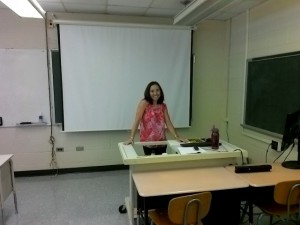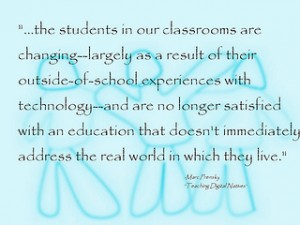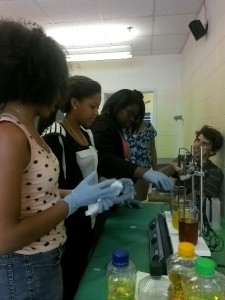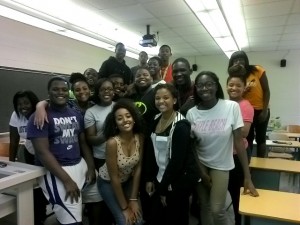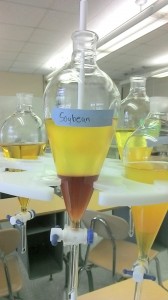
photo credit: PhotoshopScaresMe.com via photopin cc
As a new school year begins, the most obvious answer to how my fellowship will impact my students’ learning is that they will learn all about biodiesel in my thermochemistry unit. Of course, small tidbits of information will fall into various other areas of the chemistry curriculum. Content aside, I’ve been reminded of life as a student. I will approach working with my students differently, more compassionately and more patiently, because of this experience. It was uncomfortable for me at first, but then, just like my students, the routine became familiar and I learned how to succeed and accomplish tasks.
But I believe the biggest impact is going to come from all of the resources I have practiced using this summer. Since this fellowship began, I have a growing list of new resources and technologies for my classroom. The resources don’t really change the content, but they change either the delivery or the assessment of the content. I’ve also shared a lot of new ideas with my mentors and colleagues. They have signed up for an animoto education account and are using it to make some recruiting videos for the bioengineering department at NC A&T. And I’ve introduced my principal to Remind 101 and he’s interested in using it for our staff! I have even volunteered to share all my resources with teachers at school who need some renewal credits with technology. Here’s my list and how I’ll use them this year in my classes. Keep sharing all the great ideas!
1. gosoapbox.com – I am going to use this for some formative assessments in the classroom and to get feedback on some lessons. I used it during my externship with a summer camp group and their feedback was positive. Thanks Jason Lineberger.
2. photopeach – I’ve made a video for my module (thanks Kimberly Sanderlin!) These are so quick to make, I’m planning on making some to introduce a few other chapters and get the class talking.
3. animoto – I’ve made several videos for my module and for my Kenan blog. I’m thinking about incorporating this into a student project where they can create their own videos.
4. QR codes – thanks Karen Martin – I’ve made QR codes for chemical lab equipment and my students will scan the code to learn about the piece of equipment and how to use it.
5. Curriki – since we made our Kenan group, I”ve found a few new ideas for my classes.
6. yola.com and weebly.com – I’ve made a website for my module! I know, I can’t believe it either, but it’s very easy and it looks professional.
7. screen cast-o-matic and scriblink websites – I’ve made a few flipped classroom videos for chemistry. I’ll be curious to see how the students respond to them!
8. Remind 101 – texting for teachers – I’ve set up my classes for the fall semester for communication.
